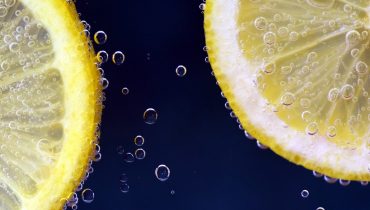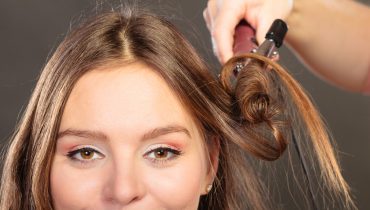A positive diagnosis of celiac disease constricts you to a life of strict gluten abstinence. From then on, you have to be double and triple sure that whatever you eat, drink or use on your body is gluten free. That’s not the only way that celiac disease affects your life.
Numerous studies have shown that people suffering from celiac disease tend to have a multitude of other health problems trailing them. They are at a higher risk of autoimmune diseases, anaemia, depression, infertility, irritable bowel syndrome and even cancer.
Celiac disease also affects the hair, skin and nails, causing a variety of conditions such as psoriasis, brittle hair and nails and an itchy skin rash condition called dermatitis herpetiformis.
Effects of celiac disease on hair
Celiac disease affects your hair in several ways and through different mechanisms. In some people the effects are mild to moderate – such as brittle and thinning hair – while in others the effects can be as severe as complete hair loss (alopecia areata).
The most common cause of hair damage when you have celiac disease is nutritional deficiencies. Celiac disease affects the small intestine. It triggers the body’s own immune system to attack and damage the small finger-like projections (villi) that absorb nutrients in the intestine.
The damage severely hampers the small intestine’s ability to absorb important minerals and vitamins that the body needs.Nutritional components like zinc, copper, vitamin D and vitamin E are important in the health of your hair, skin and nails. They play an essential role in the synthesis of proteins that keep your hair strong and healthy.
Even a mild deficiency in these nutrients can cause your hair to get weak and brittle. Without treatment, the condition gets worse. Hair takes on a lifeless, unusually aged appearance and soon starts falling off.
Another unfortunate fact that researchers have uncovered is that people with celiac disease are more likely to also suffer from autoimmune diseases such as type 1 diabetes, Addison disease and arthritis. Alopecia areata – a genetic-related form of baldness – is one of these autoimmune diseases that could cause severe hair loss if you have celiac disease.
Effects of celiac disease on nails and skin
The same nutritional deficiencies that starve hair of essential proteins are also the ones that affect nails, causing them to get weak and brittle. Your nails bend too easily and get splits more frequently. They may also get discoloured.
As for the skin, the impact of celiac disease comes from a combination of nutrient deficiency and opportunistic autoimmune diseases that affect the skin.
The most common effect is dermatitis herpetiformis. This is a skin condition characterised by a very itchy blistery rash on the skin. Other effects include skin lesions, sores, eczema and hives. Your skin may also appear duller and more aged than usual.
Treatment and lifestyle management
The only treatment for celiac disease is a lifestyle change to strictly gluten free products. There are no drugs to treat the disease.
After staying away from gluten-containing foods and products, most people with celiac disease report an immediate improvement in symptoms. Their hair gets back to normal, nails get stronger and skin reactions go down.
Once you switch to a gluten-free lifestyle, your small intestine gets a break. Since it is not under constant attack by your immune system, it recovers and is able to absorb more nutrients into the body.
Not just food
When most people think about gluten-free, they automatically assume it only refers to food and drinks. It’s true that changing to a gluten-free diet will be the biggest lifestyle change you will make. But there are other products that you should also be extra cautious about.
Gluten does not enter your system just through the digestive tract. It can also be absorbed through your skin. So check your moisturizers, hair products, makeup and even shampoos to make sure you don’t come into contact with gluten in any way. Whenever possible always by gluten free.
Your doctor may also recommend you take gluten-free supplements to provide your body with the minerals and vitamins it has been missing.
After a few weeks of no contact with gluten in whatever form, you should be feeling major health improvements. Consider looking for gluten free shampoos, oils and other hair products that are formulated specifically for damaged hair. They will help your hair gain back its strength and vitality faster.


